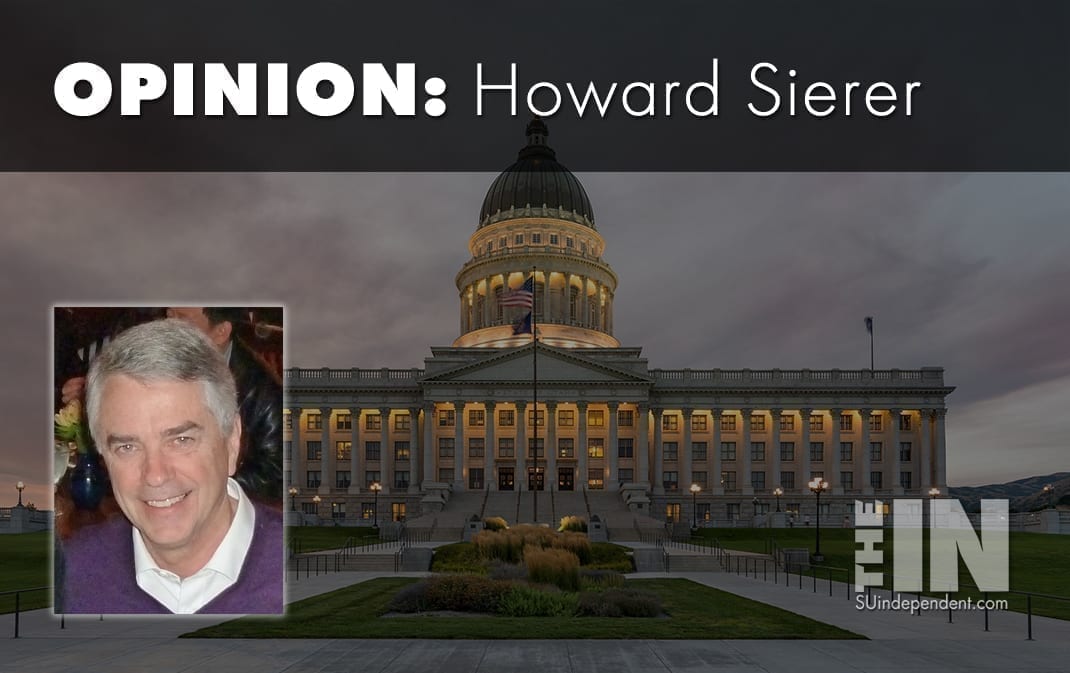
Utah Is Conservative and Not Likely to Change
By Howard Sierer
Utah is one of the nation’s more conservative states and we’re not likely to change.
A 2018 Gallup tracking poll reports that “conservatives greatly outnumber liberals in 19 U.S. states.” The poll shows Utah as the country’s ninth most conservative state with 41 percent self-described conservatives, 40 percent moderates, and only 15 percent who view themselves as liberals.
Utah trails only Wyoming as the state with the highest percentage of Republicans. But the state’s moderation on some issues might surprise you. For example, Utahns as a whole, support increased legal immigration, finding themselves at odds with the Trump administration.
According to the World Population Review, “Conservative politics aims for a smaller, deregulated government and desires to preserve the political philosophy and regulations articulated in the Declaration of Independence and the Constitution.
“There is an aversion to rapid change and a strong belief that traditional morality, such as that articulated in the Bible, needs to be preserved. Additionally, conservatives also emphasize the importance of free-market capitalism and free trade.”
Conservative readers might want to add to or modify some of that, but it does a pretty good job of summarizing my political perspective. Here’s how that plays out for me and for many conservative Utahns.
Start with the Constitution and the Bill of Rights.
Freedom of religion is the first freedom in the First Amendment. Just as many of North America’s first European settlers came seeking religious freedom, Utah’s first settlers of European ancestry were likewise refugees from religious persecution.
Even 170 years later, members of the Church of Jesus Christ of Latter-day Saints are acutely sensitive to perceived infringements on anyone’s right to practice their religion.
The 2nd Amendment – the right to bear arms – has not been the flashpoint of controversy in Utah that it has in some other states. Reflecting its frontier heritage, Utah is one of 24 states permitting “open-carry” of firearms. Of those, Utah is one of 13 where gun owners are subject to licensing.
Expect an only grudging change in areas where politics and “traditional morality” butt heads. Socially conservative Utah acquiesced to federal same-sex marriage rulings but there’s little doubt that it would be repealed in a heartbeat if left to the state legislature or likely even to a popular vote.
The state’s rancorous process approving medical marijuana demonstrated the belief of many Utahns that “the road to hell is paved with good intentions.”
A whopping 64.9 percent of Utah is owned by the federal government, an even greater percentage than Alaska, and second only to Nevada’s 84.9 percent. Unsurprisingly Utah’s relationship with national land-use authorities is subject to occasional friction.
When President Clinton designated the 1.9 million-acre Grand Staircase-Escalante National Monument, he met with a lot of state pushback. President Obama’s similar designation of the Bears Ears National Monument met more of the same.
Southern Utah’s Washington County is 75 percent owned by the federal government. As one of the fastest-growing metropolitan areas in the country, government bodies within the county find themselves inextricably involved with the Bureau of Land Management and other federal agencies at almost every turn.
Asking “big brother” for permission to take almost any land-use action doesn’t sit well with many Utahns, even when federal agencies do their best to cooperate.
One of my favorite columnists, Megan McArdle, described at some length “How Utah Keeps the American Dream Alive.” A Bloomberg op-ed writer at the time, she made her first-ever visit to Salt Lake City to see how a deep red state provides so much upward mobility for its poorest citizens, contradicting liberals’ stereotypical view of conservatives.
She found that Utahns demonstrate great compassion for the welfare of others, especially the poor and those in difficult circumstances. One example: our Republican-dominated legislature passed a major initiative on intergenerational poverty unanimously.
Unlike all-too-many government programs, the program is succeeding with most of the state’s homeless resettled in permanent housing through a focus on “Housing First.” Southern Utah’s Switchpoint Community Resource Center, whose motto is “Changing the Face of Poverty,” is a local example.
While Utah is very welfare-minded, the one-size-fits-all kind dictated from Washington D.C. is not what we have in mind. Instead, we have the highest number of volunteer service hours per capita in the country.
Conservative Utah appreciates the good intentions of its liberal citizens and has embraced some of their ideals. But expect us to go about them in a less regulated way, often led by volunteers rather than the government.
We lead the nation in a wide variety of metrics and hope to keep it that way.
Viewpoints and perspectives expressed throughout The Independent are those of the individual contributors. They do not necessarily reflect those held by the staff of The Independent or our advertising sponsors. Your comments, rebuttals, and contributions are welcome in accordance with our Terms of Service. Please be respectful and abide by our Community Rules. If you have privacy concerns you can view our Privacy Policy here. Thank you!
Click here to submit an article, guest opinion piece, or a Letter to the Editor





The only thing I disagree with in thus articles is the
Partial statement towards the end. “Conservative Utah appreciates the good intentions of its liberal citizens”
Calling BS on that one. – perhaps change APPRECIATES to PUTS UP WITH, and you get closer to the real socio-political paradigm. Even this second term is a little on the light side but close enough.
Utah prides itself on being conservative, then how did they end up with one of the most liberal RINO’s in the senate? He has pulled the wool over people’s eyes for quite some time. He just recently signed off on the liberal knee jerk gun laws presented by the left. I’m sure he knows that if the laws that were on the books would have been enforced in the first place, these shootings would have been avoided. Law enforcement or the powers that be don’t want them enforced.
He also voted for Biden’s pick for the supreme court knowing she has a controversial record.